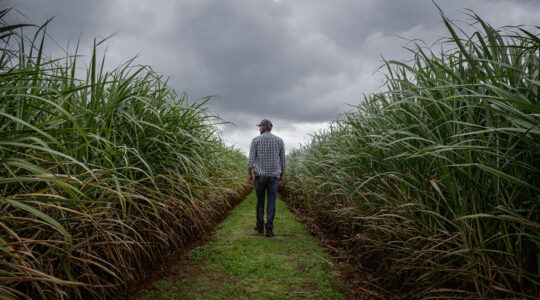The finance sector in Queensland is working at carving out a unique identity as it enjoys significant post-COVID growth and burgeoning career opportunities.
Queensland Finance Council Chair Kylie Rampa said the sector was trying to move away from its traditional reputation as a branch office state.
“There are key datasets that demonstrate that the state of play is changing quite significantly,” she told Newsreel.
“Firstly, the state’s finance industry post-COVID has grown by 38 percent, which is double the growth rate in NSW.
“We’ve also had some pretty significant mergers here. We had the creation of the Australian Retirement Trust (from the merger of Sun Super and QSuper), which is now the second largest superannuation fund in Australia, domiciled here in Queensland.
“This is on top of the merger of Energy Super and LGIASuper to create Brighter Super, the ANZ acquisition of Suncorp (Bank) and the presence of QIC (Queensland Investment Corporation) with its strong growth and increasing international presence.”
The Queensland Finance Council was established last year under the auspices of the Queensland Futures Institute (QFI). The QFI 2024 Queensland Finance Summit is being held at The Hilton in Brisbane on Friday, May 31.
Ms Rampa, who is also the CEO of QIC, said the Finance Council was formed to facilitate discussion and the advancement of issues of mutual interest to the industry in Queensland.
“We want to support career opportunities and to work together to drive initiatives and create momentum behind things that are important for the industry,” she said.
“We have already found that there are many common issues and the ideas that have been put on the table are getting traction.”
Ms Rampa said the timing was right for the Queensland finance sector to develop specialities in areas where it had a domestic and international comparative advantage.
This included the “big investment themes” of renewable energy and electrification, rare earth minerals, carbon reduction and high-tech manufacturing.
“Because many groups in Asia are wanting to access opportunities here, Queensland has an advantage, particularly related to investable opportunities into renewables and transition given our abundant solar and wind capacity and significant reserves of the critical minerals needed to transition,” Ms Rampa said.
“Renewable energy policy in Australia, proximity to Asia, trade relationships, and infrastructure’s resilience to macro factors, present an attractive entry point for investors in our region of the world.
“The finance sector has a crucial enabling role to play in facilitating the capital investment required to achieve net zero.
“For example, we are a significant issuer of green bonds. QTC (Queensland Treasury Corporation) is currently the largest Australian semi-government issuer of Climate Bonds Standard Certified Green Bonds – circa $12.5 billion on issue.
“Green bonds, reef credits, biodiversity credits and carbon credit units may also be some of the new products in our financial future and Queensland can get ahead of the game in these emerging markets.
“We’re building out some very strong capability, very strong credentials, but also have embedded opportunity because of the nature and attributes of the state. There’s good awareness and there’s a genuine propensity to work with global clients and global investors.”
One of the challenges arising from the sector’s recent success has been the “absolute war for talent.”
Ms Rampa said state border barriers in finance had largely broken down so Queensland could attract good people because of its affordability, lifestyle and emerging opportunities.
“We have brought a lot of people in, particularly post COVID, but what’s important is that we retain the talent and continue to attract new talent,” she said.
“The reality is, to do that, we need to be competitive from a remuneration perspective and we need to be able to show and demonstrate that we can provide career opportunity.
“We also need to ensure that (Queensland) graduates don’t look to larger southern markets and think they need to go there to get the necessary experience.”
The sector is proving particularly attractive for women, who make up 57 percent of the finance workforce in Queensland.
“I think as an industry we have had a very big focus on diversity,” Ms Rampa said. “This is not only on gender, but on broad diversity across the sector.
“We’re not where we want to be yet, but we’re well on our way. This includes a lot of women taking on senior positions. Finance does seem to be an industry that is increasingly attractive for women.”
Tickets for the 2024 Queensland Finance Summit are available on the QFI website.









